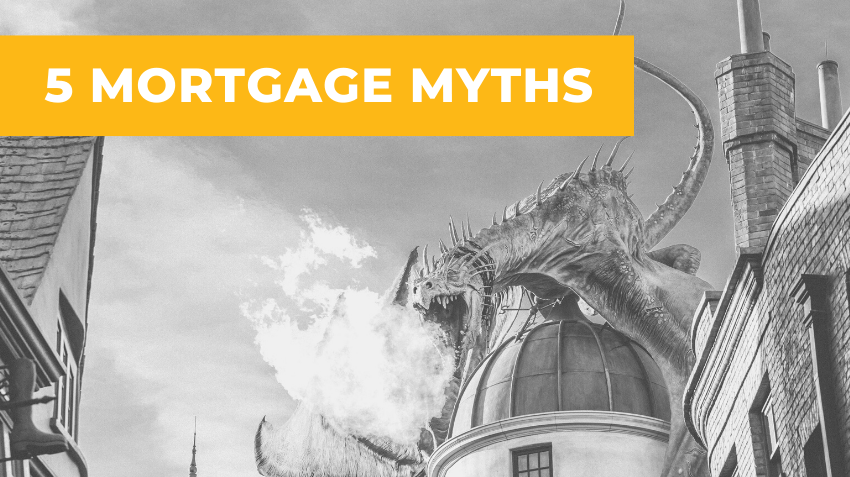When buying a home, there are many variables and aspects of the transaction that can get extremely complicated. Overall, the key piece of the transaction is the mortgage and the terms associated with it. While your mortgage advisor is critical in guiding you along the way and keeping you informed, we often see the same misconceptions pop up time and time again.
In order to be the most informed home buyer and homeowner possible, it is important to understand the truth about mortgages. Here are five common mortgage misconceptions and myths we hear with some explanation on what the truth actually is.
Getting preapproved and prequalified is the same thing.
While some mortgage companies might use these two terms interchangeably, the truth is they are very different. Being prequalified often means that only your credit was pulled, and you could be eligible to purchase a home at a particular amount. Being preapproved is much more detailed and involves looking at credit, debit-to-income (DTI) ratios, other financial assets, and more. Bottom line, being prequalified isn’t enough to make an offer on a house. You need to get preapproved by your mortgage company.
Click here for more insight into the difference between prequalified and preapproved.
I need a 20% down payment to buy a home.
Many home buyers think that a 20% down payment is required to purchase a home. While a 20% down payment will make a home buyer eligible for better mortgage interest rates, there are home loan programs that offer under 5% down payments. Your mortgage advisor will guide you in selecting the home loan option that makes the most sense, but it is important to know that you do not need to have 20% of your down payment in order to purchase a home.
Click here for more about mortgage down payments.
I’m self-employed and my income will count towards my mortgage application.
This is true, but not for all self-employed business owners. If you are self-employed, you can only count your income towards your mortgage application and debt-to-income calculations as long as your income meets some guidelines. For instance, you need to have proof of 24-months of self-employment history. In some scenarios, you can qualify with 12-months of self-employment if you have previous experience in the field you are in and your income is at least as much as you earned in that field before becoming self-employed.
Down payment is the only out-of-pocket expense when buying a home.
While most home buyers have heard of “closing costs” many don’t realize that those costs are separate from and in addition to your down payment. Closing costs are simply the fees necessary to make the transaction happen and can range from 1% – 2% of the home purchase price. Closing costs include:
- Lender Fees: Credit checks, transfer taxes, title fees, origination fee, courier fees, cost for appraisals, processing fees, underwriting, etc.
- Title Fees: Title settlement services, title insurance, and title search.
- Prepaid Costs: Many lenders require an escrow account to collect homeowner’s insurance and taxes unless you make a 20% or more down payment.
Shopping around for lenders and rates will damage my credit score.
This is not true. If you allow multiple mortgage providers to pull your credit in order to shop mortgage rates, these are considered similar inquiries and are expected within the same 30-day period. The only time your mortgage-related credit pulls can hurt your credit is when you also apply for a personal loan or purchase a car within the same 30-day period. The takeaway here is that you should not seek other types of financing or loans while you are in the process of applying for a mortgage.




